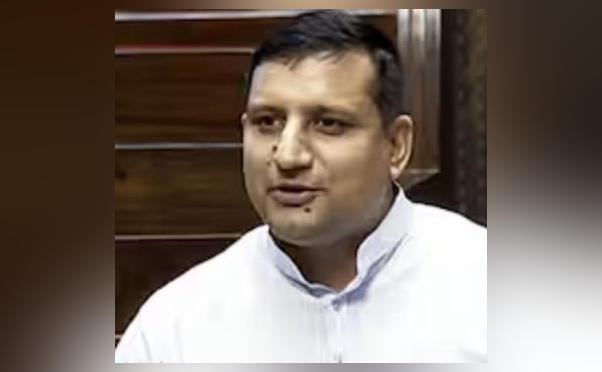
My Detractors Conspiring to Blow Me Up with a Bomb: Chirag in Bihar
In a shocking and disturbing claim, Union Minister and Lok Janshakti Party (LJP) chief Chirag Paswan alleged at a rally in Bihar’s Munger on Saturday that his detractors have hatched a “conspiracy” to blow him up with a bomb. This remarkable statement comes just days after he allegedly received a death threat, heightening concerns about the safety of the minister and those around him.
Paswan, who is the son of LJP founder Ram Vilas Paswan, made the sensational claim while addressing a rally in Munger, a town in Bihar’s Begusarai district. According to reports, he said, “My detractors are conspiring to blow me up with a bomb. But I am a ‘sher ka beta’ (lion’s son) and it’s impossible to scare me.”
The LJP chief’s remarks have sparked widespread concern about the escalating political tensions in Bihar and the potential risks faced by politicians, particularly those who are vocal about their opinions and policies. Paswan’s statement also raises questions about the effectiveness of security measures in place to protect public figures from threats and violence.
It is worth noting that this is not the first time Paswan has faced threats and intimidation. In the past, he has been involved in several controversies and has faced criticism from opponents and rivals. However, the latest allegations of a bomb conspiracy are particularly serious and have sent shockwaves through the political circles in Bihar.
Paswan’s claim of a bomb conspiracy may be seen by some as a desperate attempt to garner attention and sympathy from the public. However, given the current political climate in Bihar, where tensions are running high and the political landscape is increasingly polarized, it is essential to take such claims seriously and investigate them thoroughly.
It is also important to acknowledge that Paswan’s statement has not been without controversy. Some have criticized him for making such a sensational claim without providing any concrete evidence or details to support his allegations. Others have questioned the timing of the claim, given the upcoming elections in the state and the political tensions surrounding them.
Despite these criticisms, it is essential to acknowledge that Paswan’s allegations have raised important questions about the safety and security of politicians in Bihar. The state has a history of political violence and has witnessed several instances of intimidation and harassment of political leaders and workers.
In recent years, Bihar has seen a surge in political activism and protests, often led by student and youth organizations. While these movements are essential for democratic participation and accountability, they can also create an environment of tension and confrontation, particularly when combined with the increasing polarization of political discourse.
In the context of Paswan’s claim, it is essential to recognize that political violence and intimidation are unacceptable and can have serious consequences, not just for the individuals involved but also for the broader political landscape. Political leaders and parties have a responsibility to maintain peace and order, and any attempts to intimidate or harm others can undermine the democratic process.
In conclusion, Paswan’s claim of a bomb conspiracy is a serious and disturbing allegation that demands investigation and attention. While it is essential to approach such claims with skepticism and caution, we must also acknowledge the potential risks and threats faced by politicians in Bihar and the importance of maintaining peace and order in the state. As we navigate the complex and often polarized world of politics, it is essential to prioritize the safety and security of all individuals involved.





